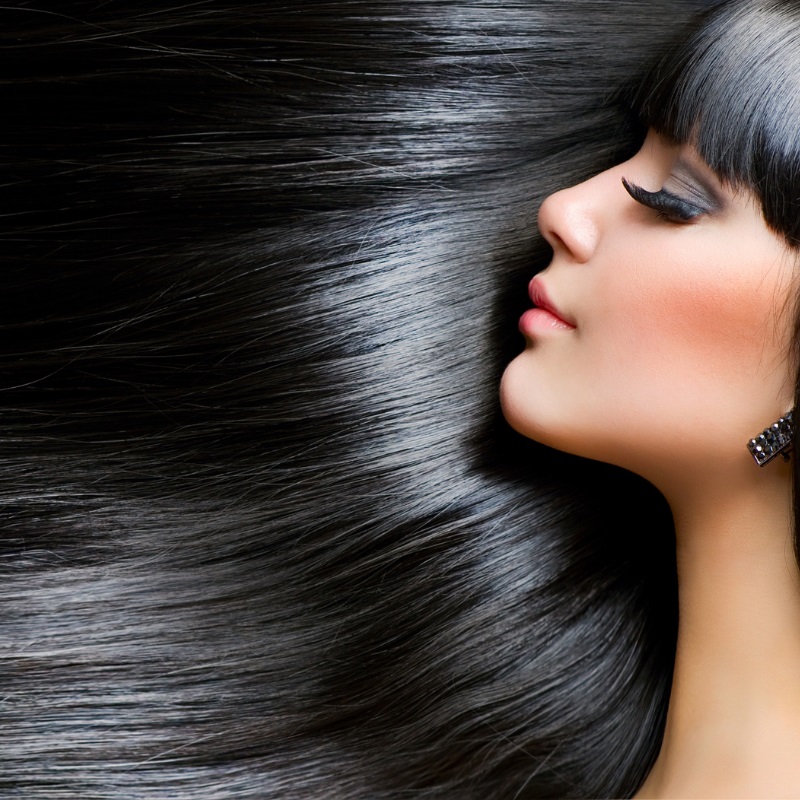From brushing to treatments: Naturally Safe Cosmetics' guide to healthy hair
Posted by Naturally Safe Cosmetics on 10th Jul 2019
When it comes to our hair, we would all love to have strong, soft and shiny locks. Beautiful, healthy hair not only looks great, it gives us confidence and makes us feel good too. The condition of your hair can be affected by the condition of your scalp. While there are many factors that can affect the condition of your scalp, both physical and emotional (stress-related), there are some things that you can do to ensure your hair is your “crowning glory”. The thing to remember here is: healthy scalp = health hair.
Brushing
Brushing can have benefits for the health and condition of your hair. These include:
- Distributing your hair’s natural oils evenly through your hair, carrying those oils to the ends, increasing overall moisture and resulting in hair that is smooth and shiny.
- Stimulating your scalp which increases blood circulation, aiding the transport of oxygen and nutrients to the hair follicles, which improves their health and promotes hair growth.
Use a good quality hair brush and do be careful with wet hair. Wet hair is weaker and brushing can snap the hair, causing damage. It's a good idea to use a wide tooth comb on wet hair and save your brush for dry hair.

Tips for healthy hair. (image source: Canva)
Scalp massage for healthy scalp, promoting hair growth & reducing hair loss
While brushing can certainly stimulate your scalp, a good old fashioned finger massage can also work wonders for both your scalp and hair. Of course, you can massage your scalp every time you shampoo and condition your hair but, when it comes to scalp massage, nothing beats a firm massage with a nourishing oil. Consider the following options:
- Argan Oil – a multi-tasking, skin-nurturing, natural oil that’s perfect for soothing a dry scalp.
- A dedicated hair and scalp treatment – Black Chicken Remedies HairOM Hair and Scalp Oil is rich in fatty acids, Omega 3 and precious essential and botanical oils to promote hair growth while helping to slow hair loss too.
- Weleda Revitalising Hair Tonic – formulated with ingredients like Horseradish and Rosemary Oil, known for their ability to increase blood circulation to the scalp, stimulate hair growth and, in the case of Rosemary Oil, help prevent premature greying.
- Jamaican Black Castor Oil – this amazing oil is renowned for its ability to nourish the scalp and strengthen hair roots for thicker, fuller and shinier hair, along with promoting hair growth.
Dry/Frizzy hair/Split Ends
For hair that is super dry, brittle or frizzy, you can’t beat a deep conditioning oil. Some of our favourite oils for adding moisture to dry hair and relieving split ends are:
- Marula Oil – incredibly rich in Omega 9 – oleic and Omega 6 fatty acids, this oil is excellent for moisturising hair and relieving split ends.
- Weleda Nourishing Hair Oil – formulated with natural oils and extracts that not only benefit your scalp but also leave your hair shiny, smooth and silky.
- Rosehip Oil – not just for your skin, this popular oil is another multi-tasker and is ideal for taming frizziness, adding shine and repairing split ends.
Dandruff/flaky scalp
Argan Oil, Marula Oil and Rosemary Oil can assist with a dry and flaky scalp but you should also consider using a dedicated Anti-Dandruff Shampoo and Conditioner which will often include ingredients like Tea Tree Oil (with antimicrobial properties) and Thyme Oil (which inhibits bacterial growth) to help reduce flaking and soothe dry, itchy scalps
Thinning hair
As mentioned above, healthy hair is dependent upon a healthy scalp and problem scalp can sometimes lead to hair loss and thinning hair. Some of our favourite options to get your scalp in top condition, promote hair growth and help reduce hair loss are:
You might also find that a dedicated volume shampoo and conditioner can help add volume and lift to thinning hair.
There you have it. Naturally Safe Cosmetics’ tips for happy, healthy hair.
Note:
Naturally Safe Cosmetics are not health
professionals. Any information or advice in this article is of a general
nature only, derived from the writer's own research, and not intended to diagnose, treat, cure or prevent any disease.
For medical advice regarding the condition of your own scalp and hair, we recommend you
contact your GP or other appropriate healthcare professional.


